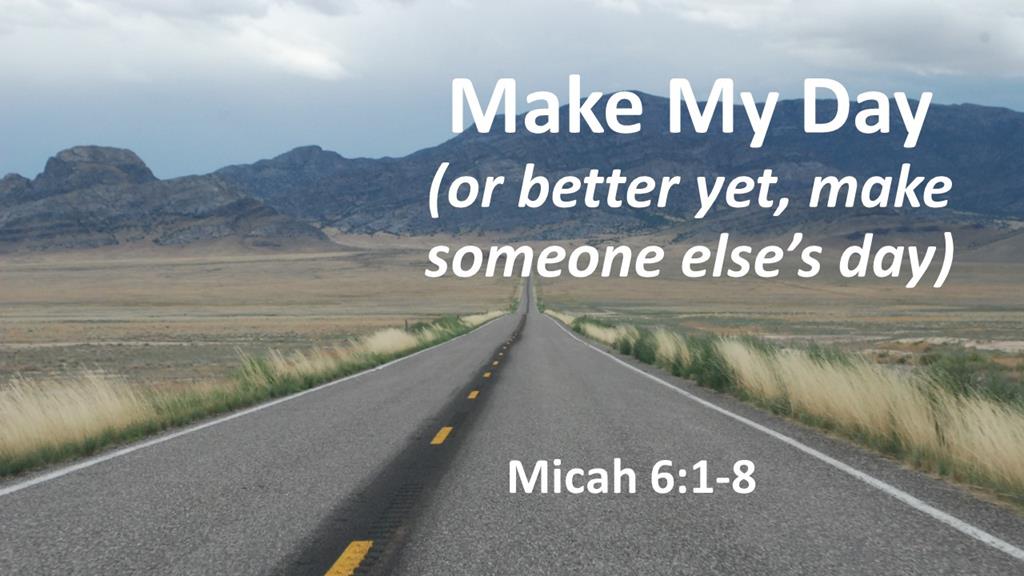
Jeff Garrison
Skidaway Island Presbyterian Church
January 26, 2020
Micah 6:1-8
A widow’s son who died in a tragic accident. This put her in great grief as she was not sure what to do. A friend took her to a holy man who was also known as a healer. “Use your power to bring my son back to me,” she sobbed.
The holy man spoke kindly to the woman. “Bring me a mustard seed from a house that has never known sorrow. I will use that seed to remove the pain you have in your life.
The woman set out immediately on a search for such a mustard seen. She visited the home of the wealthiest person in the area, thinking that no tragedy could have struck them. She knocked on the door and the told the woman of the house about her search and how she needed a mustard seed from a house without sorry.
“Never known sorrow?” the woman asked. “You’ve come to the wrong house.” She began to sob and told of all the tragedies that had struck her family. The widow remained in the home for many days, listening and caring.
Upon leaving the wealthy home, she resumed her search and tried a modest home about a mile down the road. The experience was the same. Everywhere she went, she was greeted with tales of sadness and sorry. And everyone she met found her to be a listening and caring woman.
After months of travelling, she became so involved in the grief of others that she forgets about her search for the magic mustard seed, never realizing that her search had driven sorry out of her life.[1]
You know, sometimes we should just do it. Nike may have coined that term, but it’s also the call of a disciple. Our belief needs to be displayed in our actions. God wants us to live in a way that will bless those around us with peace and comfort. We’re not to do good to earn God’s favor, instead we should be touched by what God has done for us and order our lives accordingly. How might we make someone’s day, today?
Our lesson for the morning is from Micah 6:1-8, reading from the Message translation.
###
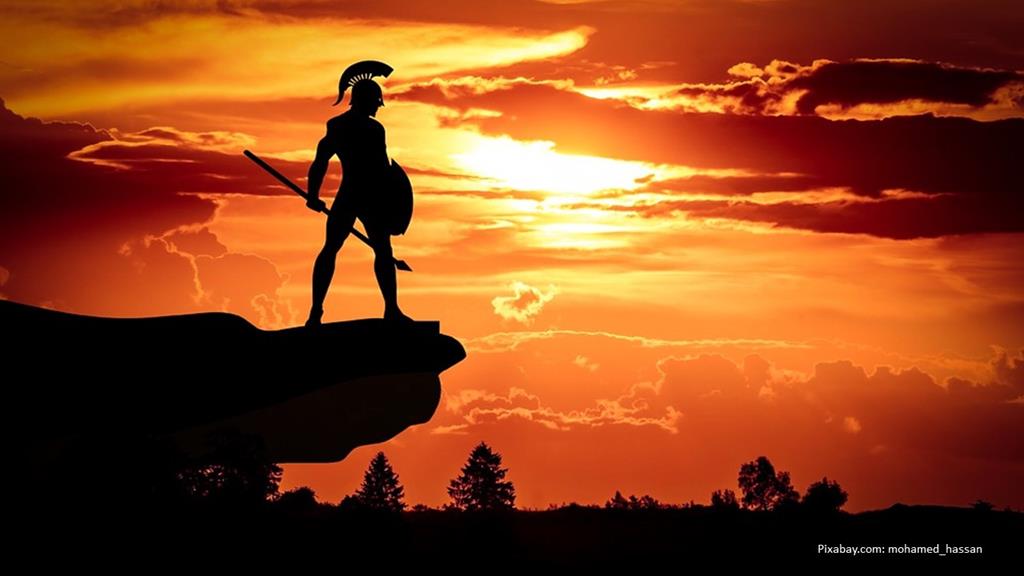 The Scriptures we read today make it abundantly clear that God isn’t looking for heroes. God doesn’t require us to be “Super-Christians.” We don’t have to sacrifice everything we have in order to find favor with God. Instead, God is satisfied with us living a life which brings no harm to anyone and which honor righteousness. These teachings from the Old Testament can be somewhat summarized into Jesus’ command to love God and to love our neighbor as ourselves.[2]
The Scriptures we read today make it abundantly clear that God isn’t looking for heroes. God doesn’t require us to be “Super-Christians.” We don’t have to sacrifice everything we have in order to find favor with God. Instead, God is satisfied with us living a life which brings no harm to anyone and which honor righteousness. These teachings from the Old Testament can be somewhat summarized into Jesus’ command to love God and to love our neighbor as ourselves.[2]
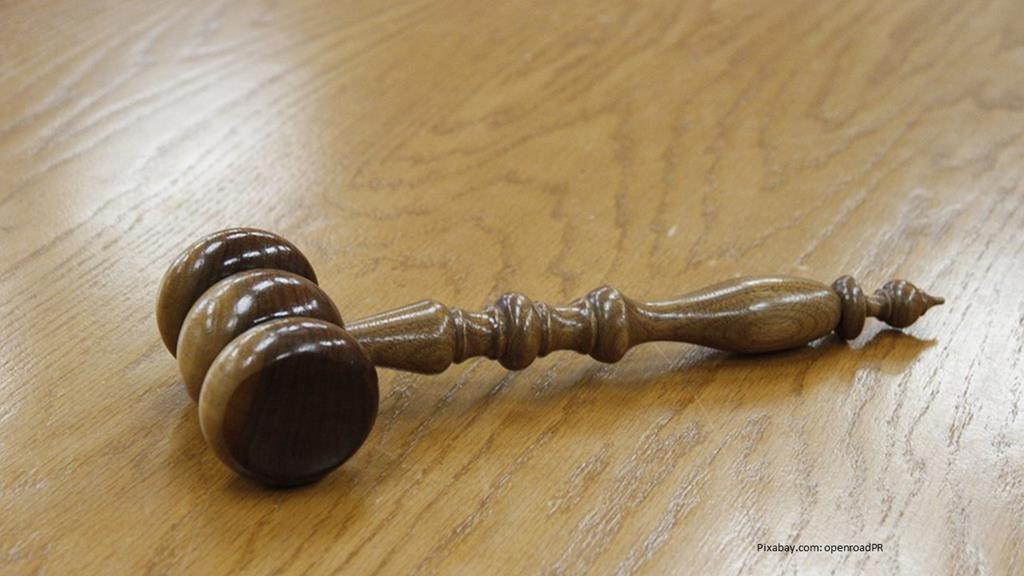 The sixth chapter of Micah begins with a courtroom scene. God indicts Israel, asking her to come and plea her case against the mountains and the hills. Why the mountains and hills? Because they have been around for ages and have seen how God has shown mercy to Israel.[3]
The sixth chapter of Micah begins with a courtroom scene. God indicts Israel, asking her to come and plea her case against the mountains and the hills. Why the mountains and hills? Because they have been around for ages and have seen how God has shown mercy to Israel.[3]
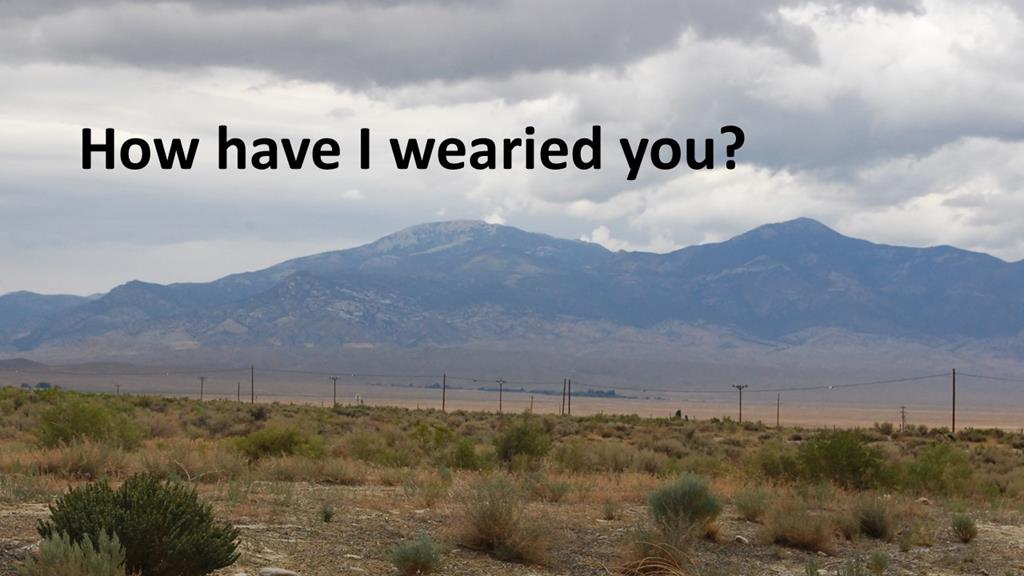 In the third verse, God asks Israel a rhetorical question. “What have I done to you, in what ways have I wearied you?” The people of Israel have been ignoring God. God’s question is designed to grab their attention. Was God the reason for Israel disobedience? Probably not…
In the third verse, God asks Israel a rhetorical question. “What have I done to you, in what ways have I wearied you?” The people of Israel have been ignoring God. God’s question is designed to grab their attention. Was God the reason for Israel disobedience? Probably not…
The indictment against Israel continues as God reminds her of the Exodus and other great deeds which have shown the saving grace of Israel’s Lord.
 In the sixth verse, Israel answers. Israel knows she has been disobedient and asks how she might come back before God. Shall it be with the best of sacrifices? Armloads of offerings, and a yearling calf? Or perhaps, like King David,[4] a thousand rams along with buckets and barrels of olive oil? And if that’s not enough, how about the most valuable thing of all, her first-born? As this response is made to God, each item escalates the value of the sacrifice.[5]
In the sixth verse, Israel answers. Israel knows she has been disobedient and asks how she might come back before God. Shall it be with the best of sacrifices? Armloads of offerings, and a yearling calf? Or perhaps, like King David,[4] a thousand rams along with buckets and barrels of olive oil? And if that’s not enough, how about the most valuable thing of all, her first-born? As this response is made to God, each item escalates the value of the sacrifice.[5]
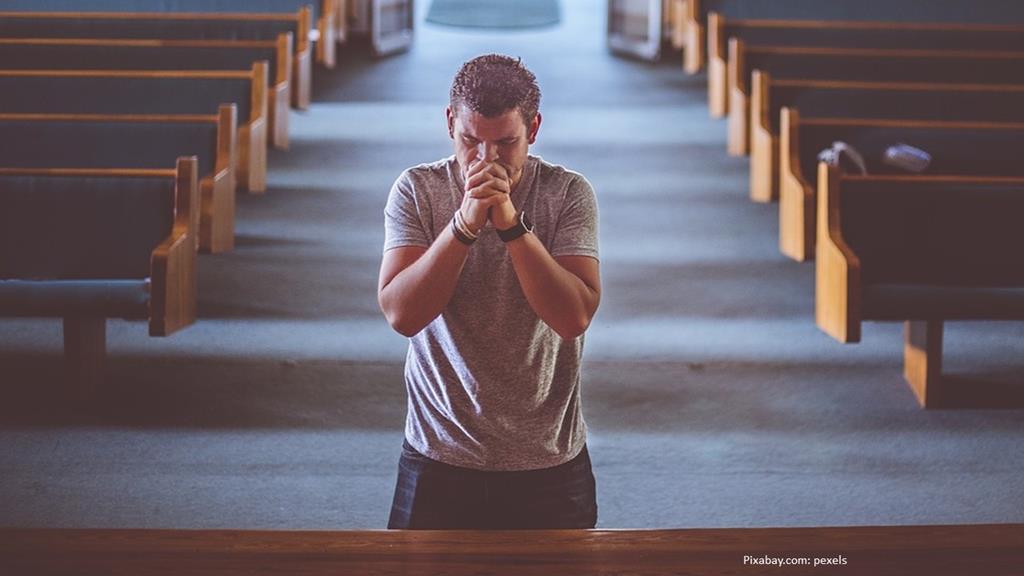
Standing before God is awesome and frightful. The Hebrew people believed that if they saw God’s holy face, they’d be consumed by God’s righteousness. So, it seems natural that if they are called into a lawsuit by God, they should up the ante of what they’re willing to offer. But God is so much greater than anything we can offer. What does God need from us? The offer to ratchet up of the sacrifices allows the prophet to correct the people’s misconception about what God wants. It’s quite simple, Micah says in verse 8. Do what is fair and just to your neighbor, be compassionate and loyal in your love, and walk with God (Or as the Message translates that ending of the verse, don’t take yourself seriously, take God seriously).
You may be asking yourself, does that mean that sacrifice and offerings to God are of no use? No, not at all. Instead, what we are told is that living a moral life is required if we expect our attempts at worshipping God to be valid. If you remember, Jesus said something about us healing the rift with a wronged brother before we make our offerings in the temple.[6]
 The beauty of this passage is its simplicity. God is not expecting us to make a monumental effort in order to gain favor. God does not want religion to become such a burden that we harbor resentment in our hearts. Instead, God wants us to incorporate our faith into our lives so that God is glorified in all that we do…
The beauty of this passage is its simplicity. God is not expecting us to make a monumental effort in order to gain favor. God does not want religion to become such a burden that we harbor resentment in our hearts. Instead, God wants us to incorporate our faith into our lives so that God is glorified in all that we do…
Wendell Berry is a Christian, an environmentalist, a farmer and a poet from the hills of Kentucky. Years ago, at a commencement speech during a college graduation, which he titled “The Futility of Global Thinking” he told the students:
“Nobody can do anything to heal the planet. The suggestion that anybody could do so is preposterous. The heroes of abstraction keep galloping in on their white horses to save the planet—and they keep falling off in front of the grandstand.”[7]
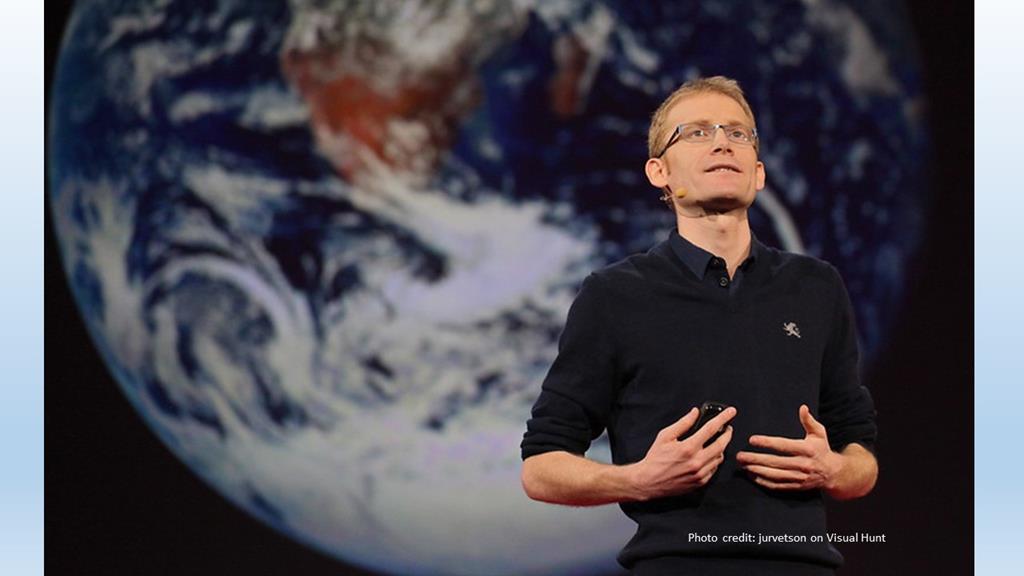 Think about what Berry is saying. When we look at the environmental crisis from a global level, it becomes unmanageable. Berry goes on to tell the students that instead of worrying about how to save the planet, they should concern themselves with the care of their own neighborhoods.[8] This is true not just for environmental issues, but every other kind of challenge our world faces. We can’t change the hearts of others and avoid a war, but we can love our neighbors and began to build a community that reflects godly values. And slowly, if blessed by God, such communities can take shape and change the world.
Think about what Berry is saying. When we look at the environmental crisis from a global level, it becomes unmanageable. Berry goes on to tell the students that instead of worrying about how to save the planet, they should concern themselves with the care of their own neighborhoods.[8] This is true not just for environmental issues, but every other kind of challenge our world faces. We can’t change the hearts of others and avoid a war, but we can love our neighbors and began to build a community that reflects godly values. And slowly, if blessed by God, such communities can take shape and change the world.
What does Berry have to do with Micah? Well, in a sense, they are both prophets speaking to a world which has lost its connection to its source of life. The priest of Israel might demand that 1,000s of rams and barrels of oil be offered up to God to get Israel back on the right track, but what effect would that really have had on the average Hebrew in the 8th century BC? They’d be overwhelmed. Likewise, we are told that the answers to the world’s problems are global, but that’s overwhelming. We can’t get our minds around such problems.
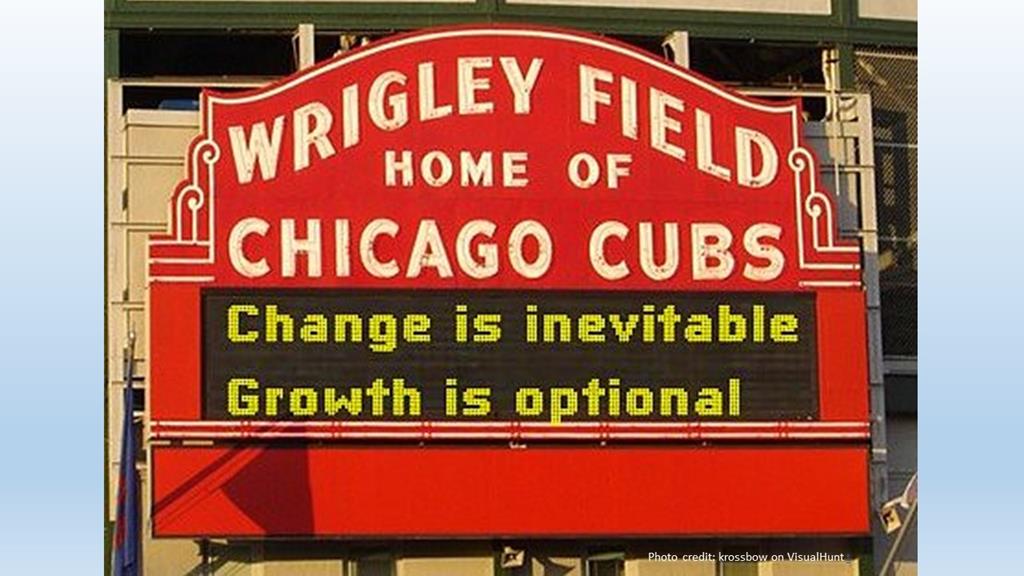 Let’s think of the implication of what Micah and Berry have to say to the discussion of the church in America in the 21st Century? We cannot deny-things are changing in our world. The shape of the church and society are undergoing radical restructuring. Our church and society seem helpless in stopping the violence and the brutality which we read about daily.
Let’s think of the implication of what Micah and Berry have to say to the discussion of the church in America in the 21st Century? We cannot deny-things are changing in our world. The shape of the church and society are undergoing radical restructuring. Our church and society seem helpless in stopping the violence and the brutality which we read about daily.
We have a lot of problems in our world. The environment, crime, hunger, drugs, war, domestic violence, teenage pregnancy, unemployment… the list seems endless. As Christians, our Lord and Savior calls us to be concerned and to do our part to make the world better. But isn’t it nice to know that we are not required to do it all ourselves?
 One of the problems of the modern church, I believe, is that we’ve become practical atheist.[9] As practical atheist, we still believe in God, we just don’t believe God is doing anything in the world so we have to make up the slack. Practical atheists can be either conservatives or progressives, and they seem to flourish at both extremes. God is still real for them; they can use the fear of God or the teachings of Jesus to excite Christians into zealous actions. These “practical atheist” are mostly committed to single causes. The conservative cause may be abortion or prayer in school, the liberal cause may be the homeless or minority rights. They demand action now and see themselves as carrying out God’s mission even to the point of martyrdom. Both can cite ways that God is on their side, and in that they are both probably right.
One of the problems of the modern church, I believe, is that we’ve become practical atheist.[9] As practical atheist, we still believe in God, we just don’t believe God is doing anything in the world so we have to make up the slack. Practical atheists can be either conservatives or progressives, and they seem to flourish at both extremes. God is still real for them; they can use the fear of God or the teachings of Jesus to excite Christians into zealous actions. These “practical atheist” are mostly committed to single causes. The conservative cause may be abortion or prayer in school, the liberal cause may be the homeless or minority rights. They demand action now and see themselves as carrying out God’s mission even to the point of martyrdom. Both can cite ways that God is on their side, and in that they are both probably right.
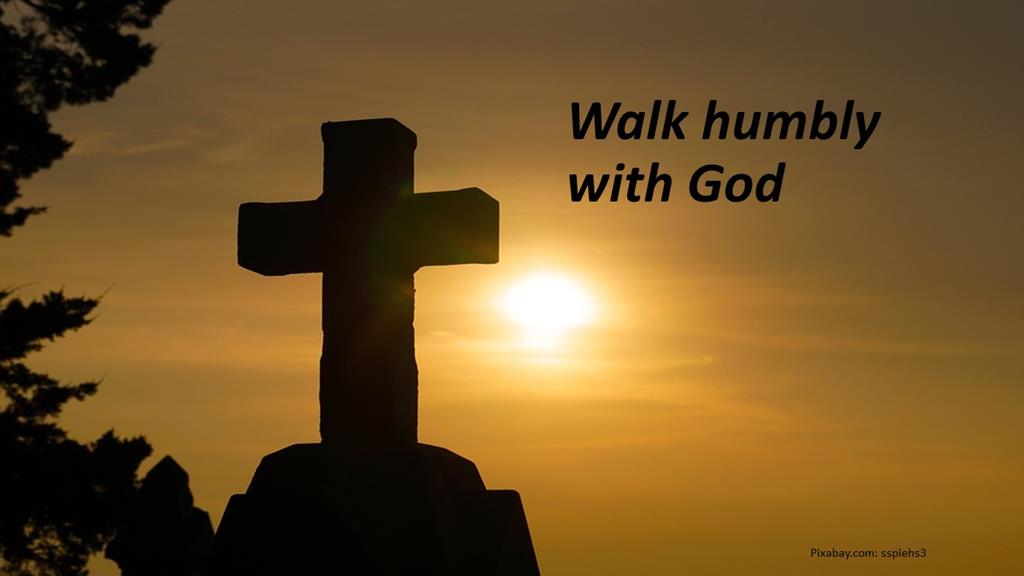 But the revitalization of our world is not going to happen because of what some individual or group does to drag along everyone else into their camp. Don’t get me wrong, I’m not saying we shouldn’t be involved in these issues. I’m just saying that, first and foremost, we should remain focused on Jesus Christ, or as Micah says in the New Revised Standard translation, “Walk humbly with our God.” We don’t need a giant to save the world. Jesus didn’t bless the superstars in the beatitudes.[10] We already have a Savior, in Jesus Christ. We don’t need another Savior; we just need to trust and have patience in him.
But the revitalization of our world is not going to happen because of what some individual or group does to drag along everyone else into their camp. Don’t get me wrong, I’m not saying we shouldn’t be involved in these issues. I’m just saying that, first and foremost, we should remain focused on Jesus Christ, or as Micah says in the New Revised Standard translation, “Walk humbly with our God.” We don’t need a giant to save the world. Jesus didn’t bless the superstars in the beatitudes.[10] We already have a Savior, in Jesus Christ. We don’t need another Savior; we just need to trust and have patience in him.
What’s holding you back? What’s stopping you from being fair, compassionate and loyal? What keeping you from walking with God? Start today. Do the small things. Do something good that will make someone’s day and make the world just a little brighter. Amen.
©2020
[1] An old Jewish legend retold by William R. White, Stories for Telling: A Treasury for Christian Storytellers (Minneapolis, Augsburg, 1986), 42-43.
[2]Matthew 22:35–40, Mark 12:28–34, and Luke 10:27.
[3]Ralph L. Smith, Micah-Malachi: Word Biblical Commentary (Waco, TX: Word, 1984), 50.
[4] See I Chronicles 29:21.
[5]James Limburg, Hosea-Micah: Interpretation, a Biblical Commentary for Teaching and Preaching, (Atlanta: John Knox Press, 1988), 191.
[6]Matthew 5:23.
[7]Wendell Berry, “The Futility of Global Thinking,” Harper’s Magazine (September 1989), 16.
[9] I’m not sure where I first heard this title used, but such atheism can be described this way: “[U]nbelief or atheism is a problem, not intellectually, but politically. Most of our social activism is formed on the presumption that God is superfluous…”Stanley Hauerwas and William H. Willimon, Resident Aliens: Life in the Christian Colony (Nashville: Abingdon, 1989), 36.
[10]Matthew 5:3-12.

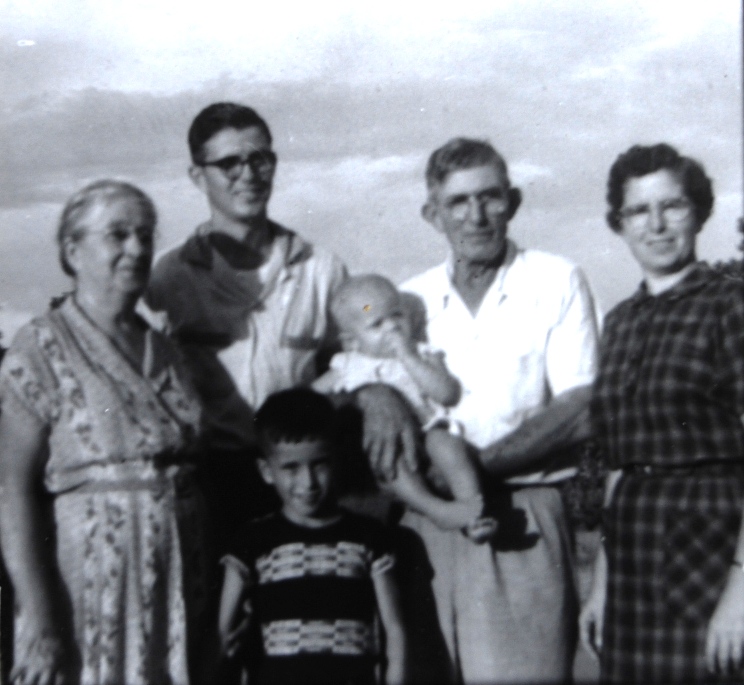
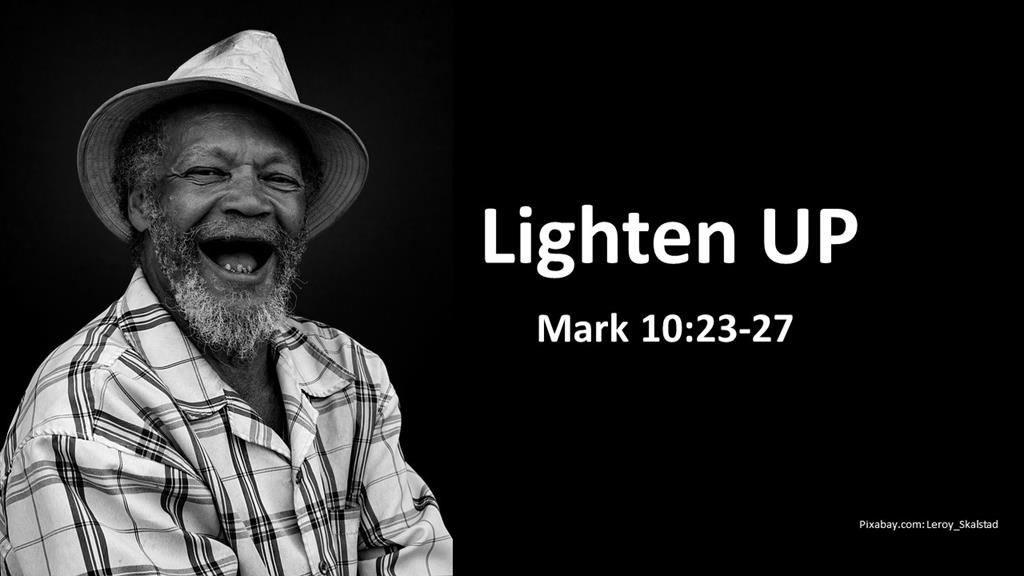
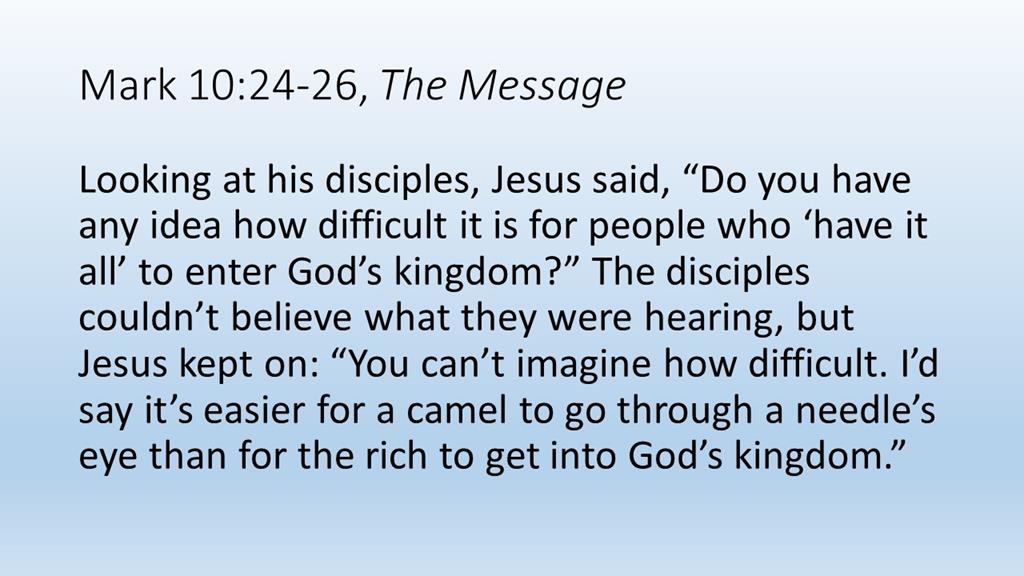

 It may have been the same way with Jesus’ parable about the camel going through an eye of a needle. Just try to image how silly this word picture looks—a camel, one of the larger animals in that part of the world compared to such a small opening. This is funny, in a “Far Side” kind of fashion.
It may have been the same way with Jesus’ parable about the camel going through an eye of a needle. Just try to image how silly this word picture looks—a camel, one of the larger animals in that part of the world compared to such a small opening. This is funny, in a “Far Side” kind of fashion. For what we know, none of the disciples were rich, so it’s easy for them to laugh at the absurdity. Or maybe not. Maybe there were those who saw riches as a sign of God’s favor. Unfortunately, there are still some people like that, proclaiming a prosperity gospel. But this story undercuts the idea that wealth equals God’s favor. Now the disciples, whose bank accounts aren’t exactly overflowing, may have laughed at all the absurd image and at all those people with all that money who are doomed.
For what we know, none of the disciples were rich, so it’s easy for them to laugh at the absurdity. Or maybe not. Maybe there were those who saw riches as a sign of God’s favor. Unfortunately, there are still some people like that, proclaiming a prosperity gospel. But this story undercuts the idea that wealth equals God’s favor. Now the disciples, whose bank accounts aren’t exactly overflowing, may have laughed at all the absurd image and at all those people with all that money who are doomed. The laughter begins to subside as they realize their predicament. They’re doomed. Frustrated, they ask Jesus, “Just who can be saved?” Jesus responds, telling them it’s impossible for humans, but nothing is impossible for God. Jesus uses humor to make this point, but we often have a hard time accepting it which is why people have tried to reinterpret this passage such as suggesting that Jesus wasn’t referring to a needle used for sewing, but that it was the name of a narrow gate through the city’s walls. I’ve heard that interpretation in sermons and think it displays our fear of the truth—that we’re not in control.
The laughter begins to subside as they realize their predicament. They’re doomed. Frustrated, they ask Jesus, “Just who can be saved?” Jesus responds, telling them it’s impossible for humans, but nothing is impossible for God. Jesus uses humor to make this point, but we often have a hard time accepting it which is why people have tried to reinterpret this passage such as suggesting that Jesus wasn’t referring to a needle used for sewing, but that it was the name of a narrow gate through the city’s walls. I’ve heard that interpretation in sermons and think it displays our fear of the truth—that we’re not in control.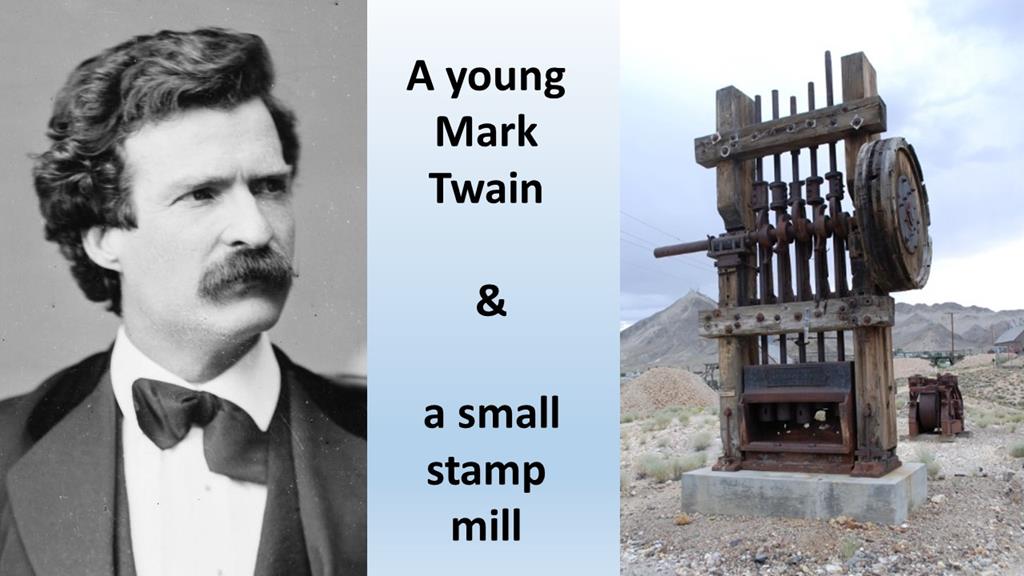 When you push an idea to the absurd, you get humor. Mark Twain knew this. He once wrote a letter from Virginia City, Nevada to his mother, telling on his brother for stealing some stamps from a local mill. According to Twain, his brother had slipped these into his pocket. Twain thought it was a perfect joke. His mom would get on his brother’s case, for she had no idea that the “stamps” in a stamp mill weigh 100s of pounds and were used to crush rock.
When you push an idea to the absurd, you get humor. Mark Twain knew this. He once wrote a letter from Virginia City, Nevada to his mother, telling on his brother for stealing some stamps from a local mill. According to Twain, his brother had slipped these into his pocket. Twain thought it was a perfect joke. His mom would get on his brother’s case, for she had no idea that the “stamps” in a stamp mill weigh 100s of pounds and were used to crush rock.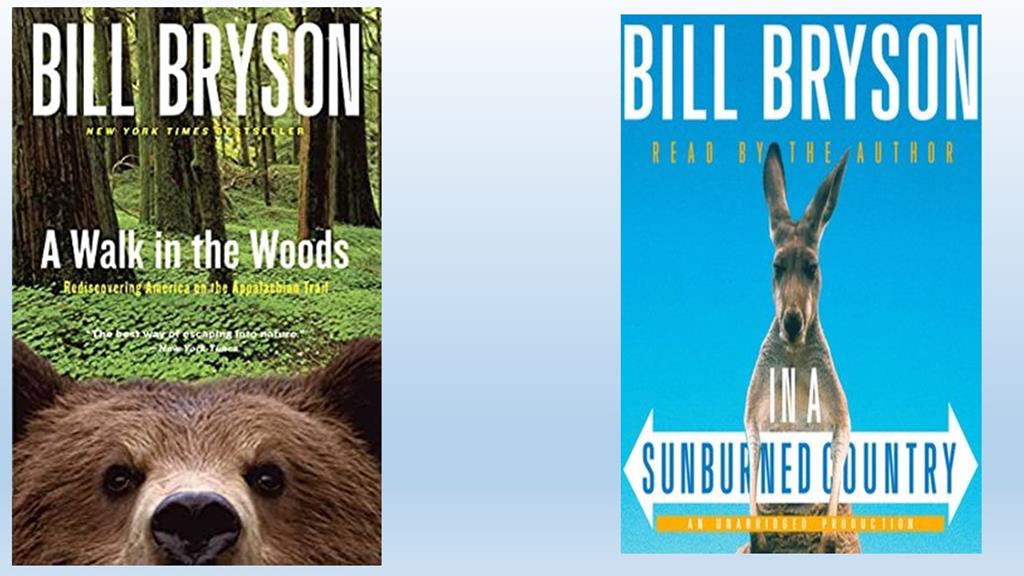
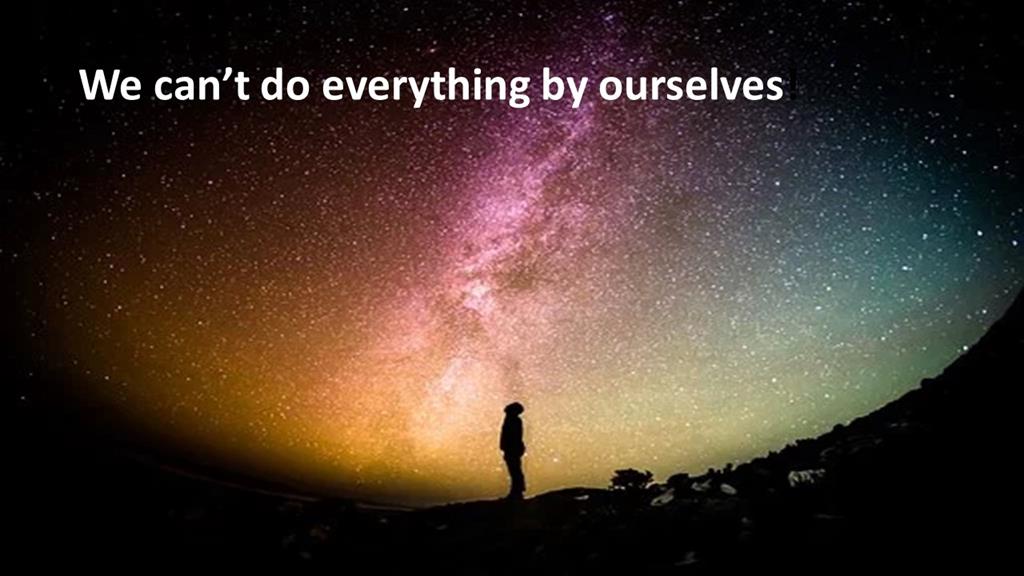 Using exaggeration to be funny is a way of saying, “Lighten Up.” We don’t need to be so uptight about everything. No, we can’t save ourselves. But the good news is that with God all is possible. Where do we point our trust? In our stuff (which won’t fit through the needle’s eye) or in God? Of course, it’s easy for us to miss the joke. That’s partly because jokes don’t always translate across cultures. Furthermore, jokes are best told and not read.
Using exaggeration to be funny is a way of saying, “Lighten Up.” We don’t need to be so uptight about everything. No, we can’t save ourselves. But the good news is that with God all is possible. Where do we point our trust? In our stuff (which won’t fit through the needle’s eye) or in God? Of course, it’s easy for us to miss the joke. That’s partly because jokes don’t always translate across cultures. Furthermore, jokes are best told and not read.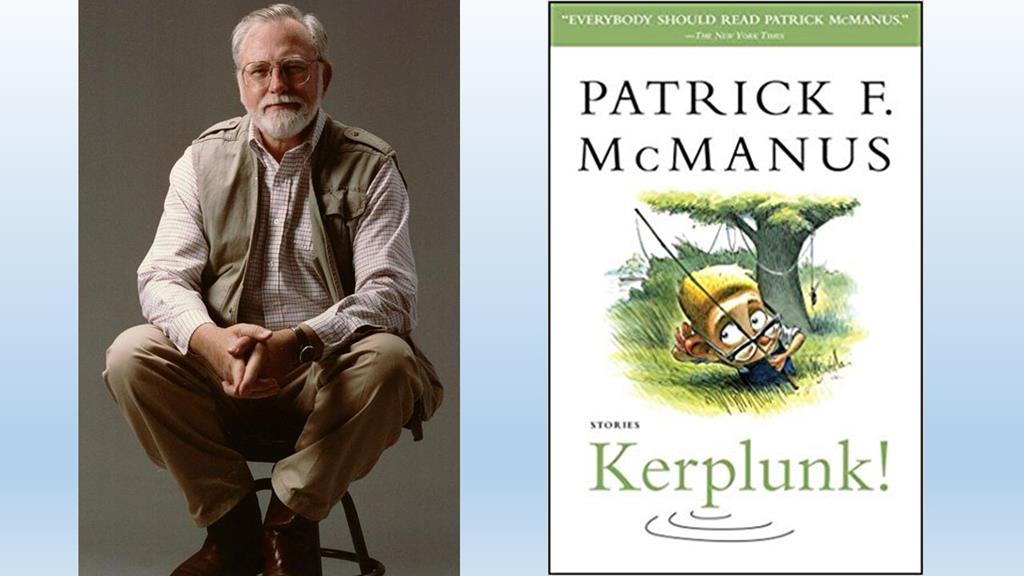 Another humorous writer I enjoy is the late Patrick McManus. He’s published a dozen or so books and wrote humorous columns for Outdoor Life and Field and Stream. While McManus used exaggeration for humor, he often reported on his own silliness and mistakes. The best jokes are those we make about ourselves and not others. The mess he found himself in while hunting or fishing can be chuckling, because many of us have been in similar situations. As he aged, McManus lamented how things change. The trails have become steeper and the oxygen in the mountains have decreased since his youth. We’ve experienced that, haven’t we?
Another humorous writer I enjoy is the late Patrick McManus. He’s published a dozen or so books and wrote humorous columns for Outdoor Life and Field and Stream. While McManus used exaggeration for humor, he often reported on his own silliness and mistakes. The best jokes are those we make about ourselves and not others. The mess he found himself in while hunting or fishing can be chuckling, because many of us have been in similar situations. As he aged, McManus lamented how things change. The trails have become steeper and the oxygen in the mountains have decreased since his youth. We’ve experienced that, haven’t we?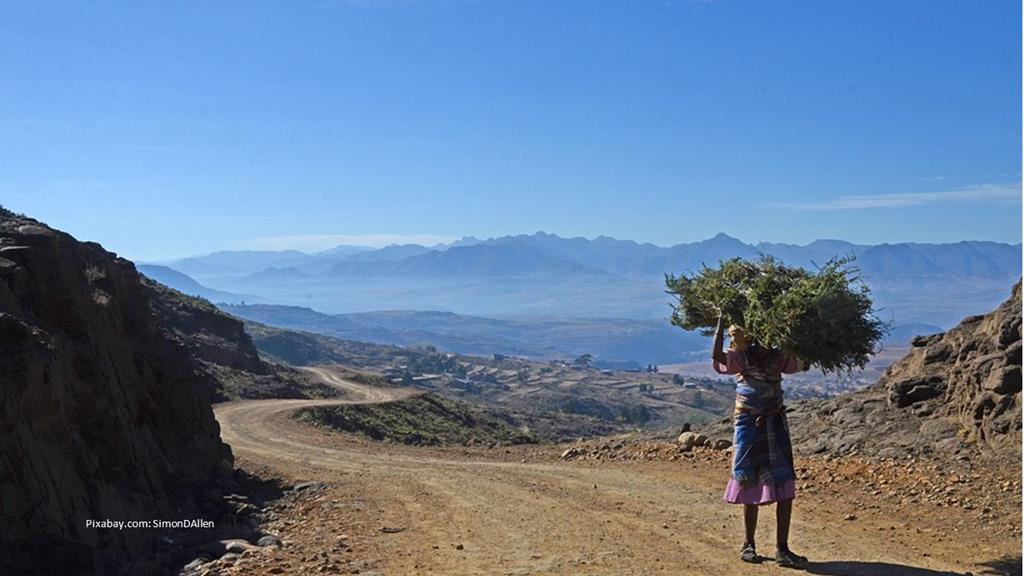 One of the problems the church has in the world is that other people see us as taking ourselves too seriously. We carry heavy burdens and don’t trust God’s Spirit enough, it’s easy to get down and depressed. And then we don’t do a good job of reflecting Jesus’ face to the world.
One of the problems the church has in the world is that other people see us as taking ourselves too seriously. We carry heavy burdens and don’t trust God’s Spirit enough, it’s easy to get down and depressed. And then we don’t do a good job of reflecting Jesus’ face to the world.
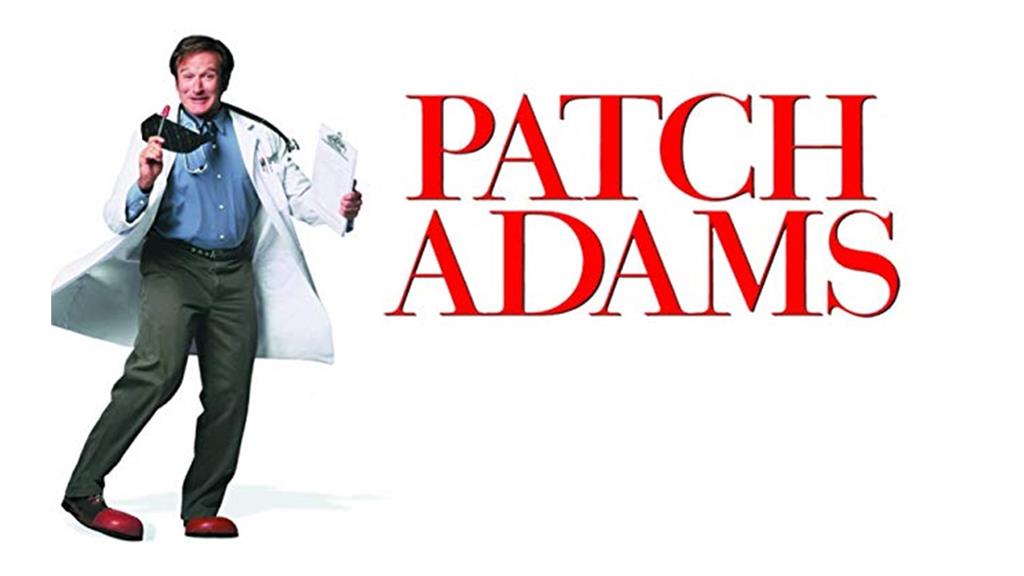 Laughter is also good for us. Do you remember the movie, Patch Adams, where Robin Williams played a doctor who used laughter in treating patients? Do you recall how he got a children’s ward filled with kids suffering from cancer to laugh? And how the head nurse was mortified and ordered him out of the ward and told the kids to get back in the bed? The movie showed how we adults are too serious and that the world needs to lighten up and enjoy things.
Laughter is also good for us. Do you remember the movie, Patch Adams, where Robin Williams played a doctor who used laughter in treating patients? Do you recall how he got a children’s ward filled with kids suffering from cancer to laugh? And how the head nurse was mortified and ordered him out of the ward and told the kids to get back in the bed? The movie showed how we adults are too serious and that the world needs to lighten up and enjoy things. Laughter relaxes us. According to some studies it can heal us by boosting our immune system. In addition to lightening our hearts and reducing anger, laughter helps us to burn a few extra calories. It lowers our stress. And it makes us more pleasant to be around!
Laughter relaxes us. According to some studies it can heal us by boosting our immune system. In addition to lightening our hearts and reducing anger, laughter helps us to burn a few extra calories. It lowers our stress. And it makes us more pleasant to be around!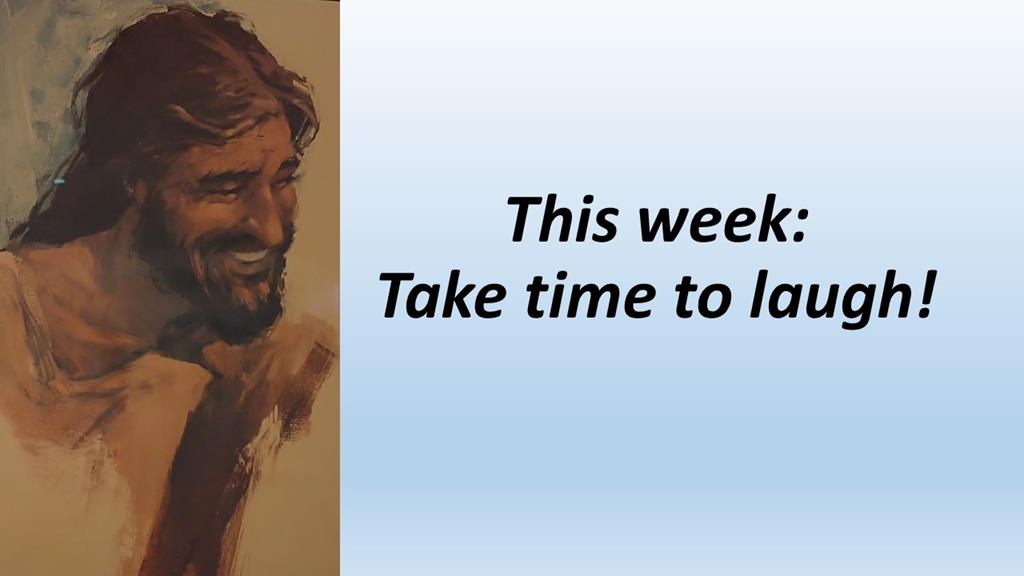 So, this week I want you to take time to laugh. Read the comics or pick up a humorous book. Take an opportunity to laugh at yourself. If you come across a great joke, drop it in an email to me or to a friend. We all need laughter and we’d be a lot better off if we could laugh at ourselves, for our follies makes us realize how much we depend on God.
So, this week I want you to take time to laugh. Read the comics or pick up a humorous book. Take an opportunity to laugh at yourself. If you come across a great joke, drop it in an email to me or to a friend. We all need laughter and we’d be a lot better off if we could laugh at ourselves, for our follies makes us realize how much we depend on God.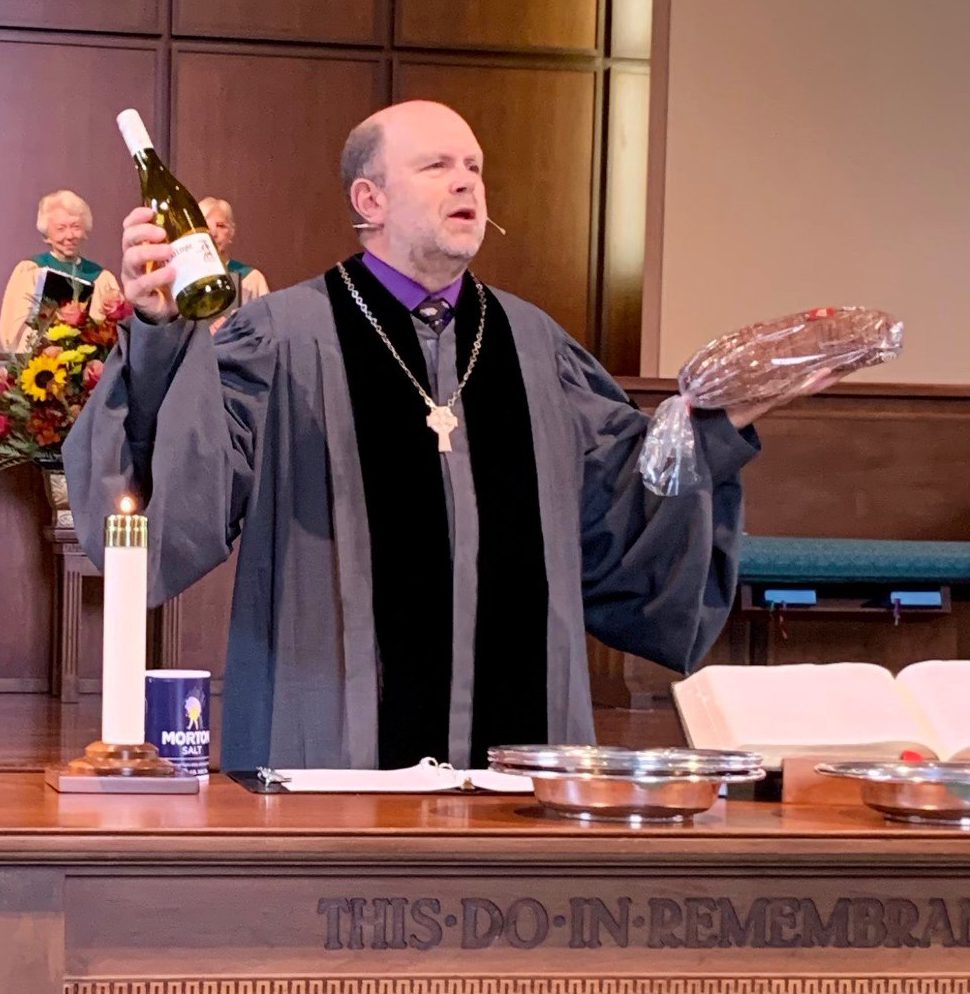
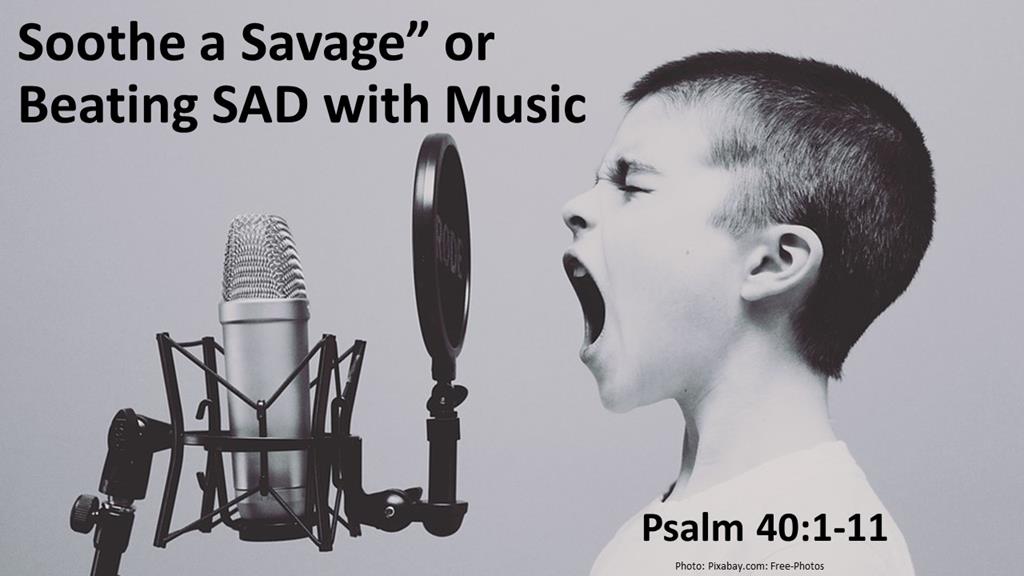 Jeff Garrison
Jeff Garrison 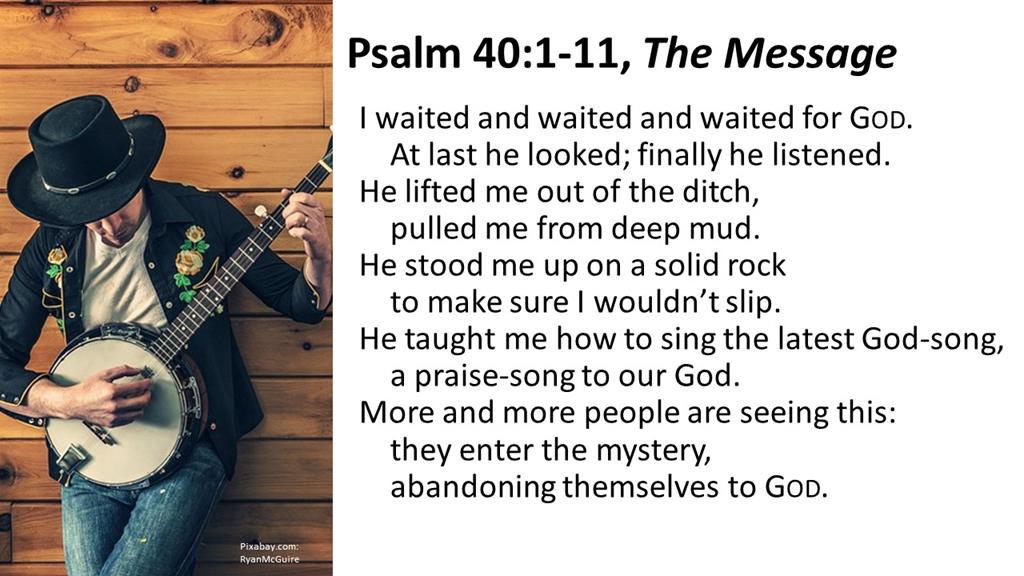
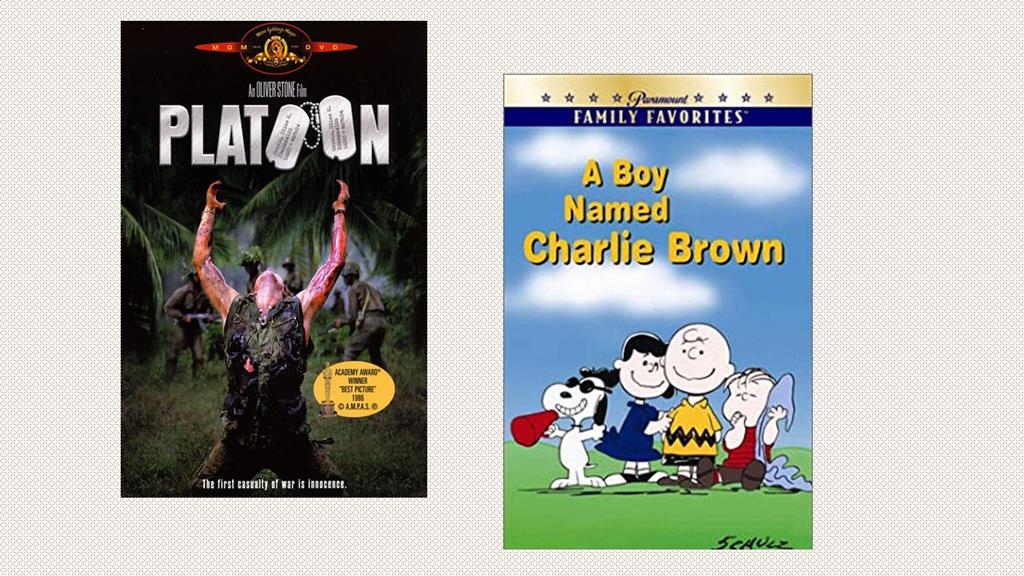 There is something about music that can take us to a place and time in the past. Those in the advertising world have known this for a long time which is why they often use popular music in the background to help sell products. Movie producers are no different as they use music to put us into the mood they are trying to convey. I don’t think I’ll ever forget the sadness, yet hopefulness, brought about from watching the movie, “Platoon.” These feelings were intensified by Samuel Barber’s haunting score, “Adagio in Strings.” Or, on a more positive note, think of the upbeat tunes used in the Charlie Brown movies. How does those tunes make you feel?
There is something about music that can take us to a place and time in the past. Those in the advertising world have known this for a long time which is why they often use popular music in the background to help sell products. Movie producers are no different as they use music to put us into the mood they are trying to convey. I don’t think I’ll ever forget the sadness, yet hopefulness, brought about from watching the movie, “Platoon.” These feelings were intensified by Samuel Barber’s haunting score, “Adagio in Strings.” Or, on a more positive note, think of the upbeat tunes used in the Charlie Brown movies. How does those tunes make you feel? Music has a power to draw us back to specific places in time, which is why it’s often used in therapy for those battling Alzheimer’s or brain injuries. From my own life, there are songs that can take me back just by listening to them. The Beatles’ “Lucy in the Sky” takes me to my childhood bedroom, in a late December evening in 1968. I was listening to the radio I received for Christmas that year. Rod Stewart’s “Maggie May,” takes me back to a wet night camping at Fort Fisher. A friend and I listened to the radio while trying to endure wet sleeping bags. The Eagles’ “Hotel California,” takes me to another rainy night, when I was in college. With kayaks strapped to the top of my car, my brother and I drove to the North Carolina Mountains to paddle in rain swollen rivers. I had no idea then that I’d hear that song so many times over the next few decades that I would become sick of it. Every time I hear haunting voice of Enya, the Irish singer, I am taken back to a drive over Sonora Pass in the Sierras at sunset. I’m sure you have such experiences, too.
Music has a power to draw us back to specific places in time, which is why it’s often used in therapy for those battling Alzheimer’s or brain injuries. From my own life, there are songs that can take me back just by listening to them. The Beatles’ “Lucy in the Sky” takes me to my childhood bedroom, in a late December evening in 1968. I was listening to the radio I received for Christmas that year. Rod Stewart’s “Maggie May,” takes me back to a wet night camping at Fort Fisher. A friend and I listened to the radio while trying to endure wet sleeping bags. The Eagles’ “Hotel California,” takes me to another rainy night, when I was in college. With kayaks strapped to the top of my car, my brother and I drove to the North Carolina Mountains to paddle in rain swollen rivers. I had no idea then that I’d hear that song so many times over the next few decades that I would become sick of it. Every time I hear haunting voice of Enya, the Irish singer, I am taken back to a drive over Sonora Pass in the Sierras at sunset. I’m sure you have such experiences, too.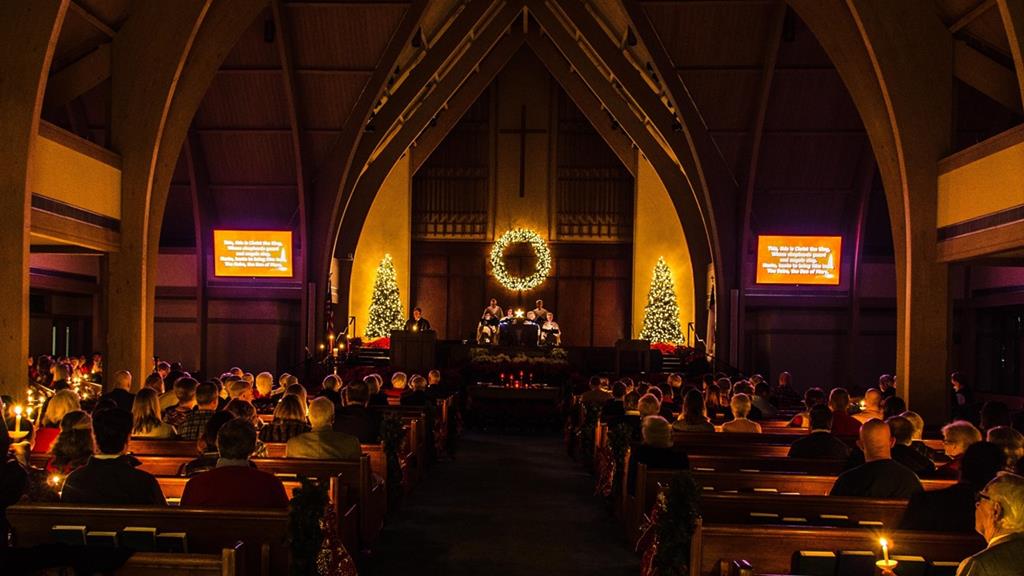 The same can be said about church and music. Maybe there was a special Christmas Eve service in which you sang, “What Child is This? and are taken back to that time. Sometimes we’re taken back to sad memories such as a song sung at a funeral. “He Leadeth Me,” was a favorite hymn of my great-grandfather McKenzie. I don’t remember him singing it as I was only 12 when he died. But I do recall the pastor officiating at his service sharing this insight. Now, whenever I hear that hymn, I am reminded of my great-grandfather and that great cloud of witnesses that have led us to his place.
The same can be said about church and music. Maybe there was a special Christmas Eve service in which you sang, “What Child is This? and are taken back to that time. Sometimes we’re taken back to sad memories such as a song sung at a funeral. “He Leadeth Me,” was a favorite hymn of my great-grandfather McKenzie. I don’t remember him singing it as I was only 12 when he died. But I do recall the pastor officiating at his service sharing this insight. Now, whenever I hear that hymn, I am reminded of my great-grandfather and that great cloud of witnesses that have led us to his place.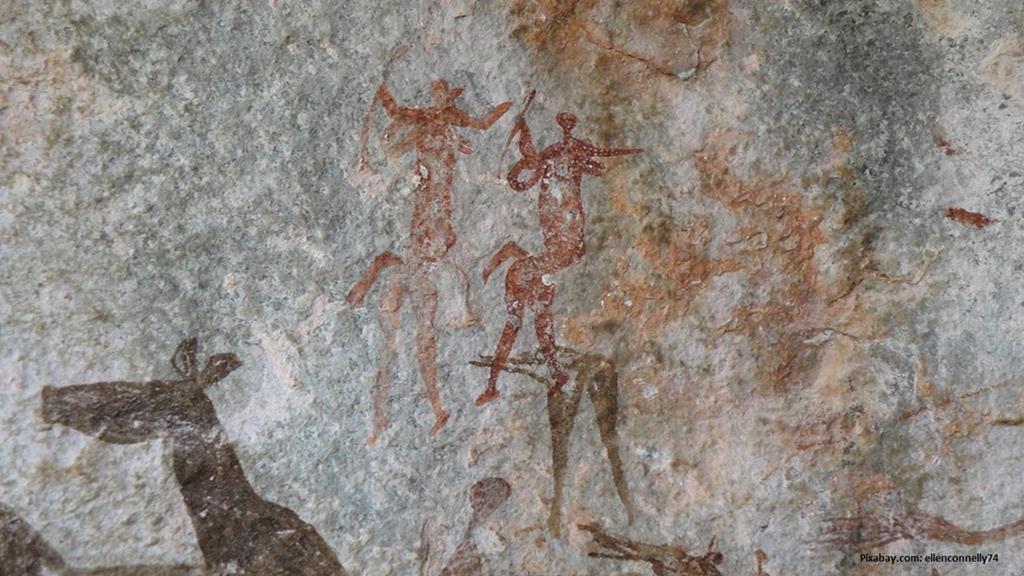 Music has ancient roots. Archaeologists learned to discover cave art when exploring in France by singing. They discovered that caves with the most resonance for singing were also the places where they were more likely to discover cave paintings. Many anthropologists believe that music was first used as a way to strengthen community bonds, maybe even going back to the prehistoric cavemen.
Music has ancient roots. Archaeologists learned to discover cave art when exploring in France by singing. They discovered that caves with the most resonance for singing were also the places where they were more likely to discover cave paintings. Many anthropologists believe that music was first used as a way to strengthen community bonds, maybe even going back to the prehistoric cavemen.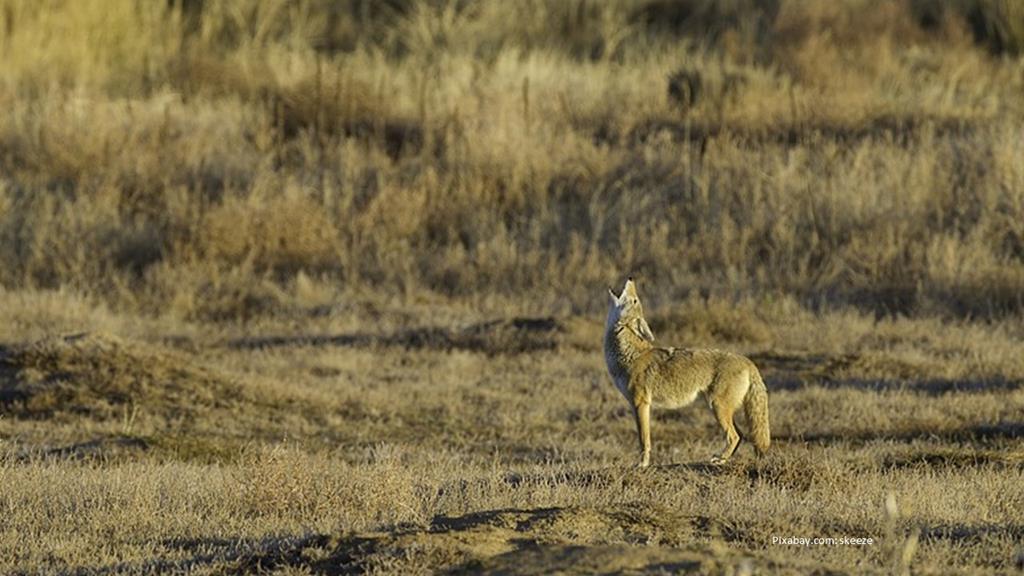 And music seems to exist beyond the human experience. There have been a lot of talk about coyotes on our island lately, but have you ever heard a pack of coyotes sing? It’s haunting yet beautiful. Each coyote has a slight variation to the song.
And music seems to exist beyond the human experience. There have been a lot of talk about coyotes on our island lately, but have you ever heard a pack of coyotes sing? It’s haunting yet beautiful. Each coyote has a slight variation to the song. Melody can change our disposition. Depending on the tune, it can make us sad or happy, reflective or energetic.
Melody can change our disposition. Depending on the tune, it can make us sad or happy, reflective or energetic. Now, what does all this have to do with Psalm 40? Our text for this morning, the first half of this Psalm, is an offering of thanksgiving to God. The Psalmist, this one is attributed to David, begins by recalling how he waited patiently for God to hear his cry. In the second and third verses, we hear how God pulled him up from the muck, put him back on firm footing, and taught him a new song. The Psalmist is humble, acknowledging everything that has been done for him is a gift from a benevolent God.
Now, what does all this have to do with Psalm 40? Our text for this morning, the first half of this Psalm, is an offering of thanksgiving to God. The Psalmist, this one is attributed to David, begins by recalling how he waited patiently for God to hear his cry. In the second and third verses, we hear how God pulled him up from the muck, put him back on firm footing, and taught him a new song. The Psalmist is humble, acknowledging everything that has been done for him is a gift from a benevolent God.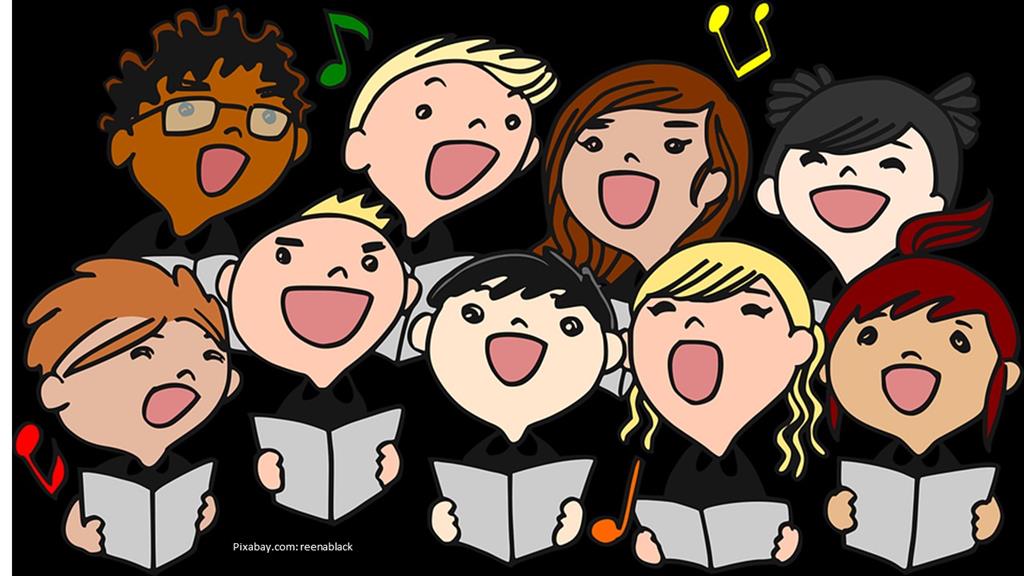 But let’s consider a moment the thought of God giving the Psalmist a new song. I like this idea: God as the great choirmaster, teaching us new music. In our early reading from Revelation, we heard about all the singing in heavenly courts.
But let’s consider a moment the thought of God giving the Psalmist a new song. I like this idea: God as the great choirmaster, teaching us new music. In our early reading from Revelation, we heard about all the singing in heavenly courts. Starting with verse four, the Psalmist calls on all who have experienced God’s grace and mercy to join him. He invites others to turn away from false gods, to turn away from that which is worship in the world, and to focus on God’s wondrous deeds. So not only is the Psalmist given a new song, he now uses this song to witness to others, showing what God has done in the world. The Psalmist does what the redeemed are supposed to do, give credit to God for our salvation.
Starting with verse four, the Psalmist calls on all who have experienced God’s grace and mercy to join him. He invites others to turn away from false gods, to turn away from that which is worship in the world, and to focus on God’s wondrous deeds. So not only is the Psalmist given a new song, he now uses this song to witness to others, showing what God has done in the world. The Psalmist does what the redeemed are supposed to do, give credit to God for our salvation.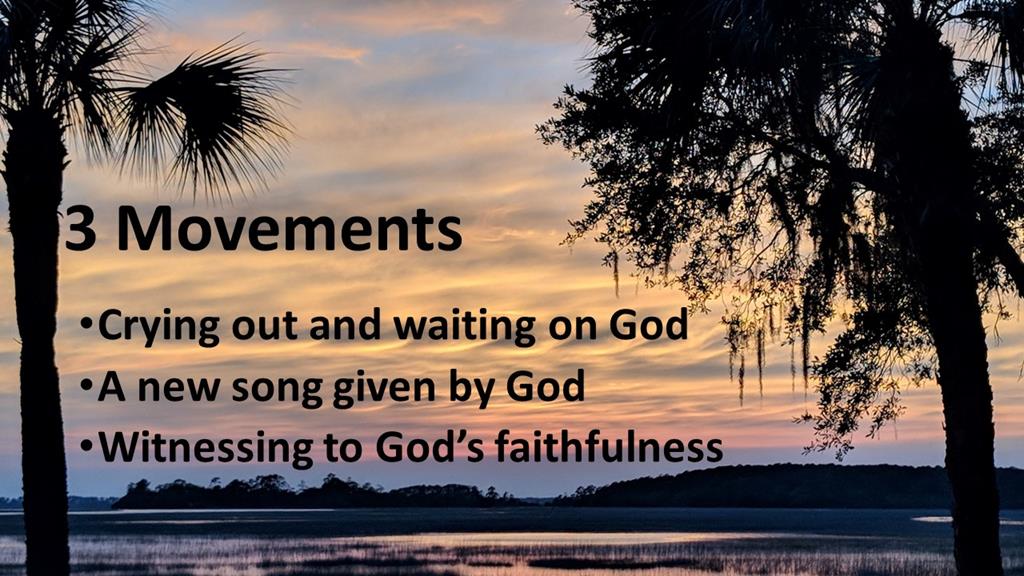 There are three important movements in this Psalm. The crying out and waiting on God to act, the new song that God provides, and our willingness to witness to God’s faithfulness. This is what the Christian life is to be about. We confess our hopelessness and helplessness to the one who can help. God hears our plea and responds gracefully. And then we tell (or better yet sing) of God’s good deeds as we witness of God’s goodness to a lost world.
There are three important movements in this Psalm. The crying out and waiting on God to act, the new song that God provides, and our willingness to witness to God’s faithfulness. This is what the Christian life is to be about. We confess our hopelessness and helplessness to the one who can help. God hears our plea and responds gracefully. And then we tell (or better yet sing) of God’s good deeds as we witness of God’s goodness to a lost world.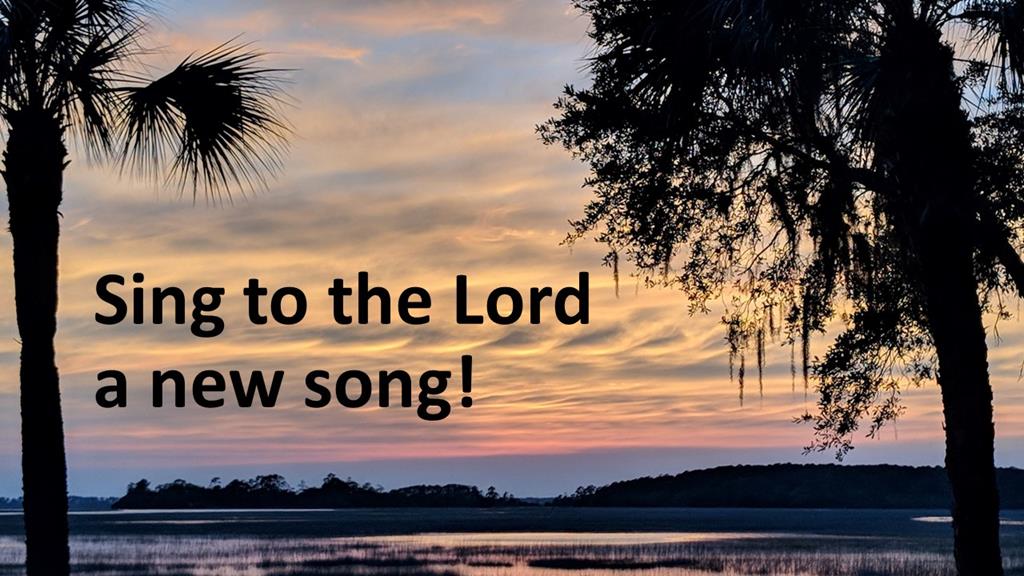 Let’s all be willing to sing new songs, songs that glorify and praise God, songs that lifts our hearts and prepare us to soar with joy. Amen
Let’s all be willing to sing new songs, songs that glorify and praise God, songs that lifts our hearts and prepare us to soar with joy. Amen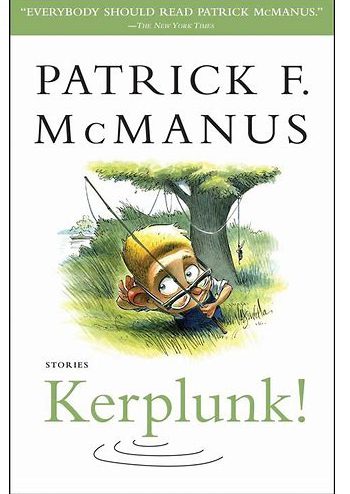 Patrick F. McManus, Kerplunk! (New York: Simon & Schuster, 2007), 227 pages.
Patrick F. McManus, Kerplunk! (New York: Simon & Schuster, 2007), 227 pages. David McCullough, The Pioneers: The Heroic Story of the Settlers Who Brought the American Ideal West (New York: Simon & Schuster, 2019), 331 pages, a few illustrations.
David McCullough, The Pioneers: The Heroic Story of the Settlers Who Brought the American Ideal West (New York: Simon & Schuster, 2019), 331 pages, a few illustrations.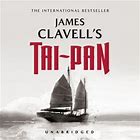 James Clavell, Tai-Pan (1966, Blackstone Publishing, 2019), 885 pages (~34 hours on Audible).
James Clavell, Tai-Pan (1966, Blackstone Publishing, 2019), 885 pages (~34 hours on Audible).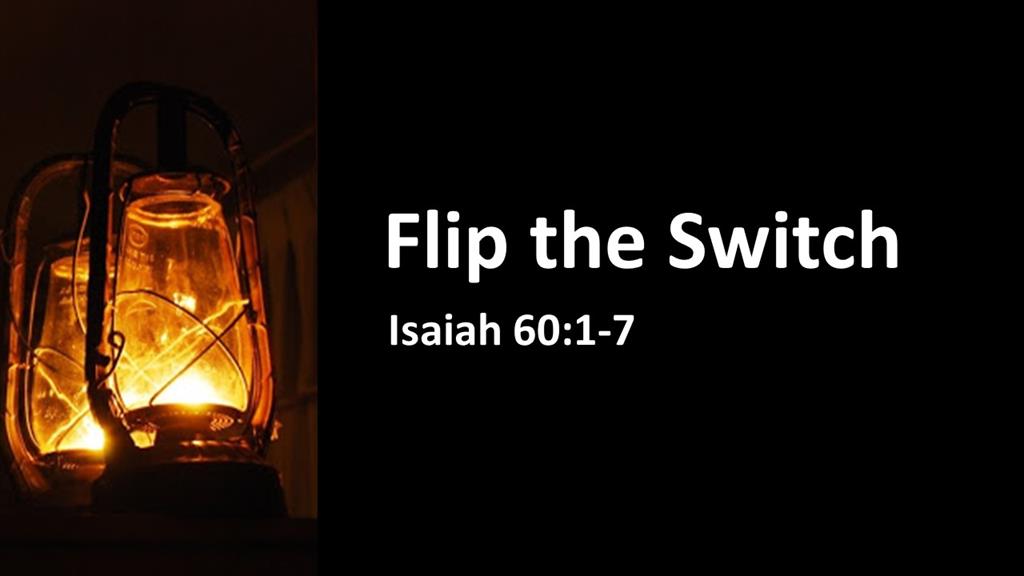
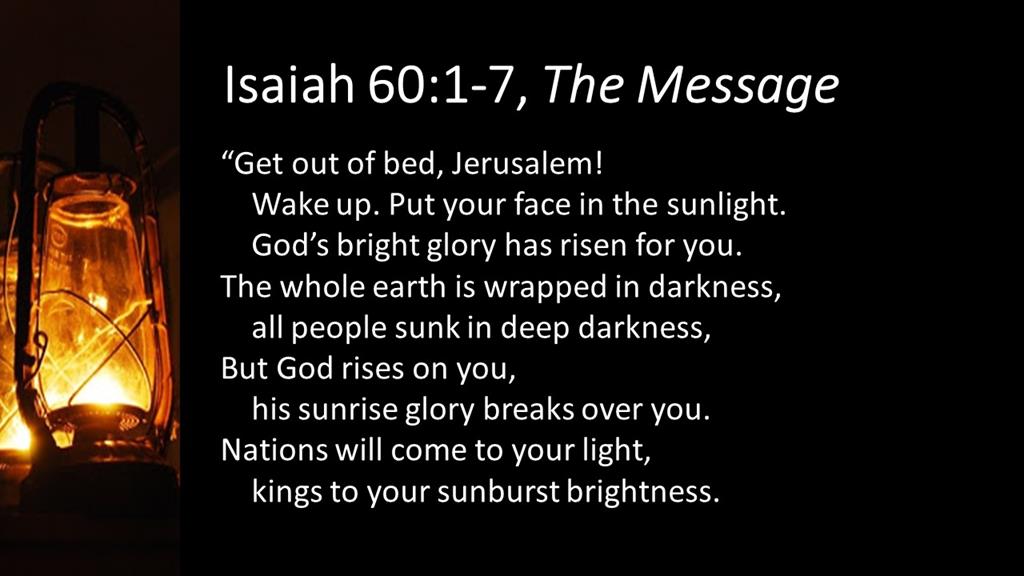
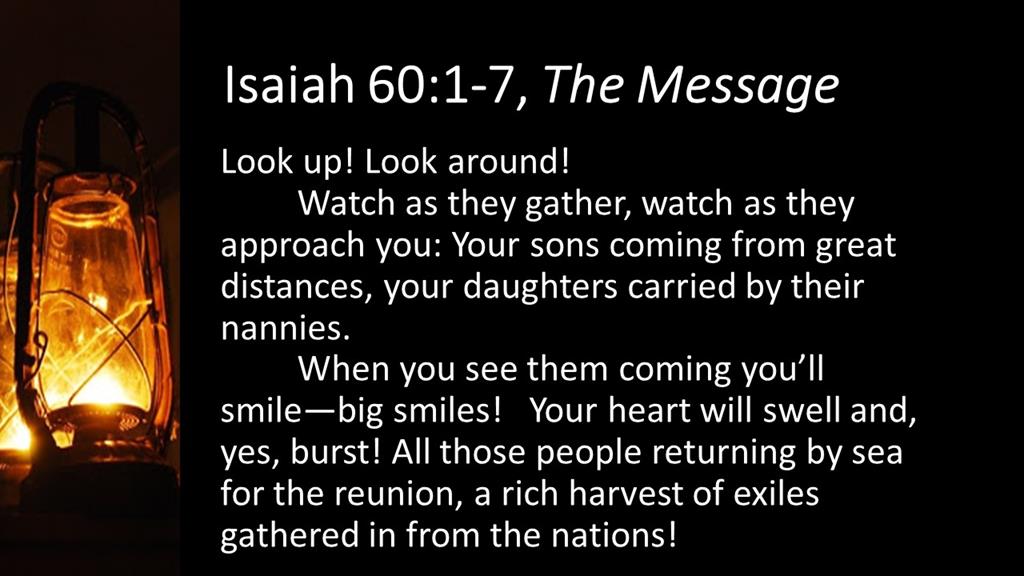
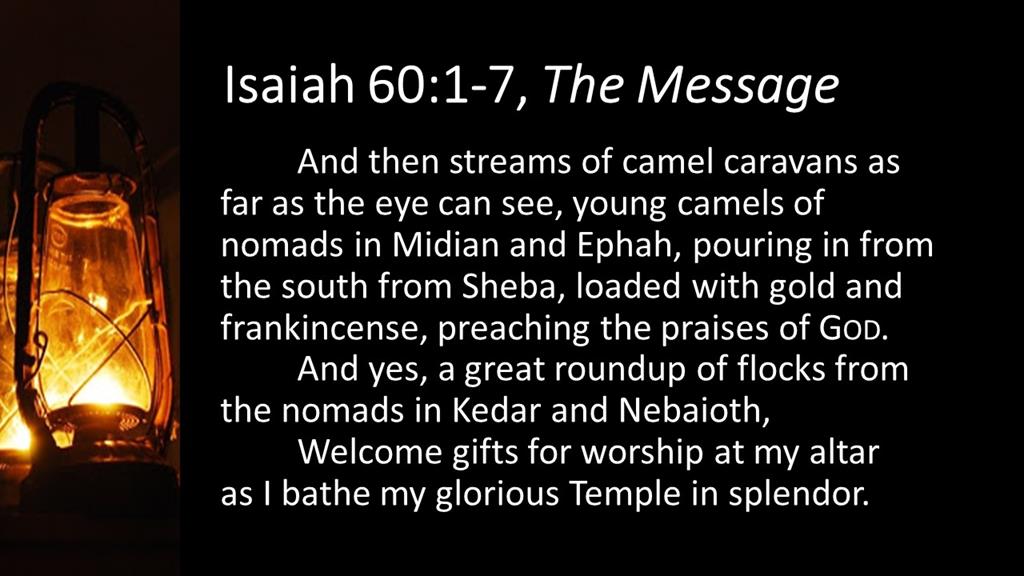
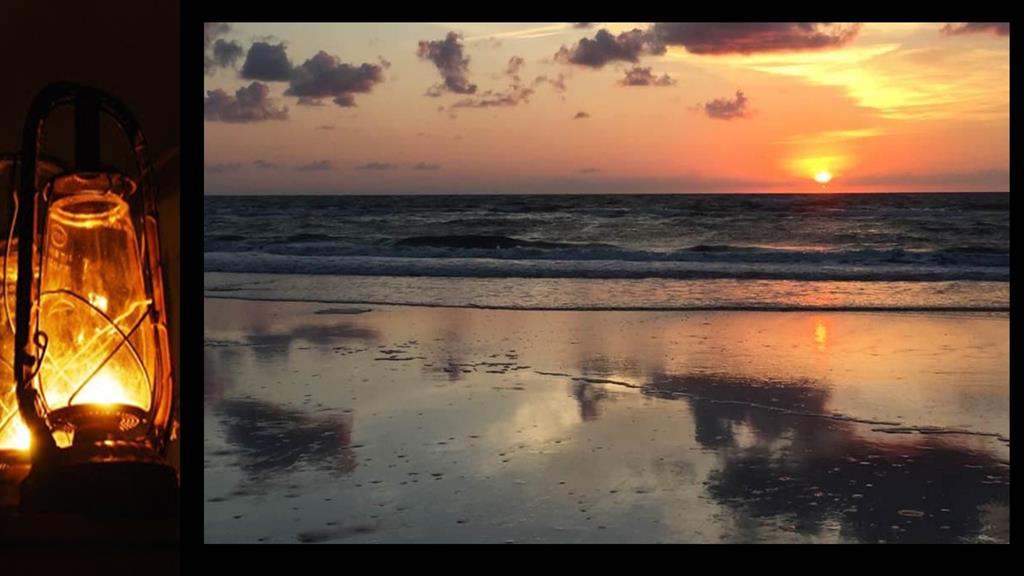 I was blessed as a child to spend many days camping on an undeveloped beach, generally in the fall of the year when the bluefish were running. We’d crawl out of our sleeping bags while it was still dark and start a small fire on the beach to drive away the chill. You could only make out everyone’s shadows created by the light of the fire or lantern. Before the stars began to disappear and the sky lightened, we’d have a line in the water, baited with cut mullet. You’d cast the line out beyond the surf, hoping you were in a good spot. Gradually, the shades of black and gray would be replaced by color as we shivered in the chill and held our rods high, an index finger touching the line waiting for the signature bump of a fish.
I was blessed as a child to spend many days camping on an undeveloped beach, generally in the fall of the year when the bluefish were running. We’d crawl out of our sleeping bags while it was still dark and start a small fire on the beach to drive away the chill. You could only make out everyone’s shadows created by the light of the fire or lantern. Before the stars began to disappear and the sky lightened, we’d have a line in the water, baited with cut mullet. You’d cast the line out beyond the surf, hoping you were in a good spot. Gradually, the shades of black and gray would be replaced by color as we shivered in the chill and held our rods high, an index finger touching the line waiting for the signature bump of a fish.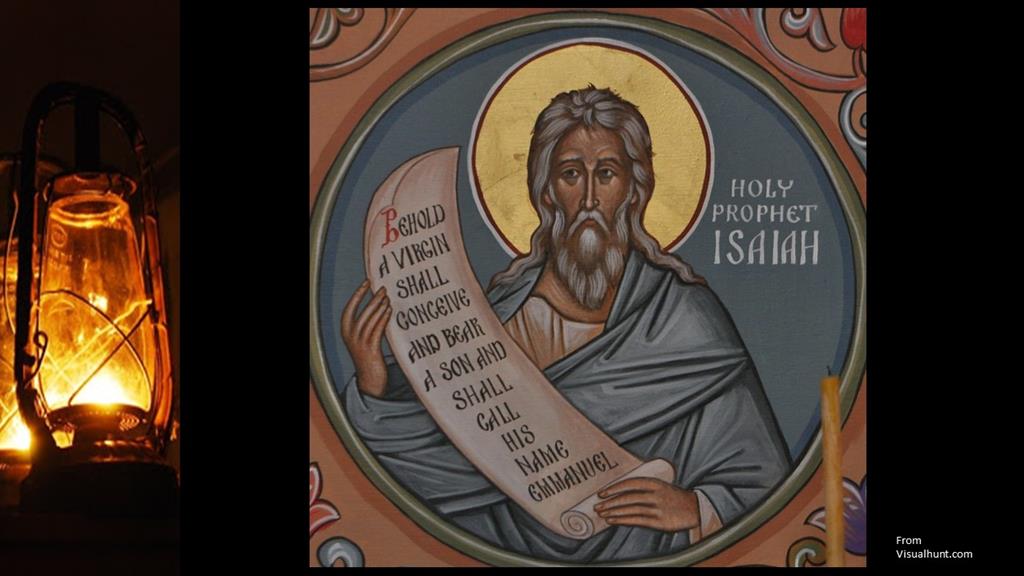 You know, the Prophet Isaiah had a lot of depressing things to say. He wrote about the fall of Israel and the coming exile for Jerusalem. War and destruction is at the forefront of his message, but occasionally Isaiah breaks out of the darkness. In Chapter 9, he writes, “The people who walked in darkness have seen a great light,”
You know, the Prophet Isaiah had a lot of depressing things to say. He wrote about the fall of Israel and the coming exile for Jerusalem. War and destruction is at the forefront of his message, but occasionally Isaiah breaks out of the darkness. In Chapter 9, he writes, “The people who walked in darkness have seen a great light,”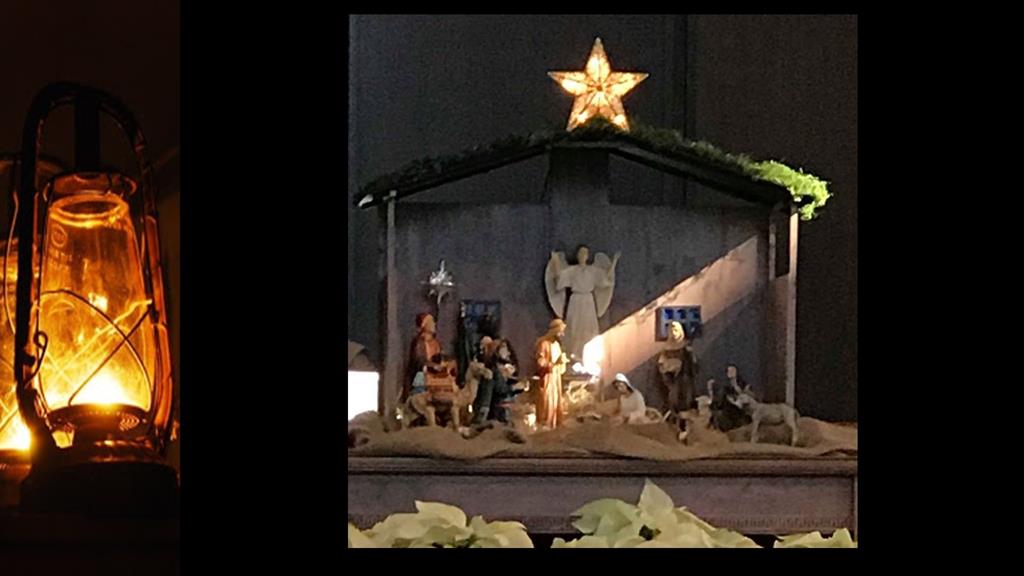 As Christians, we read these passages through the lens of Jesus, the light coming into the world as proclaimed in John’s gospel.
As Christians, we read these passages through the lens of Jesus, the light coming into the world as proclaimed in John’s gospel.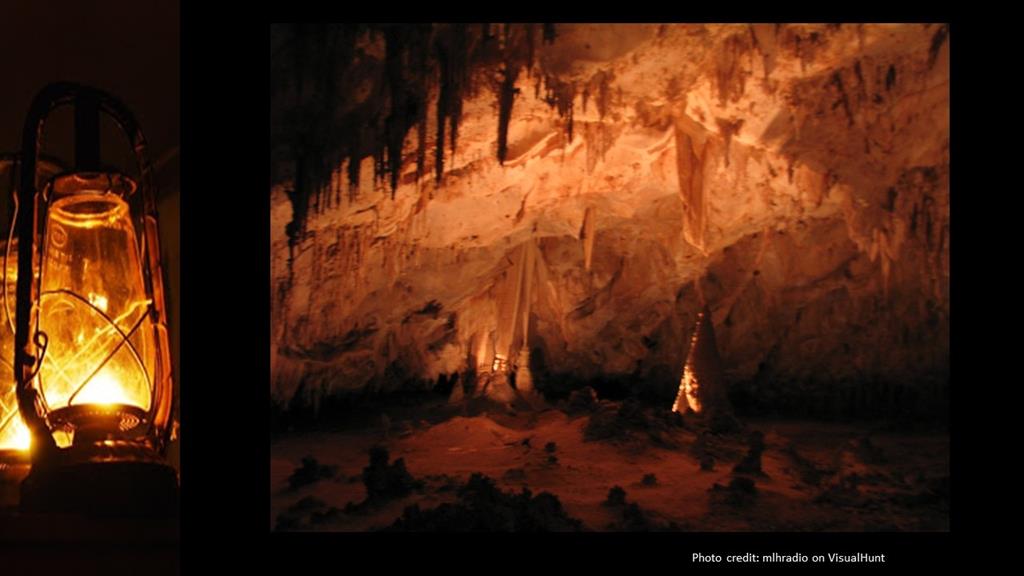 Years ago I had the opportunity to spend a few days spelunking (or caving) in eastern West Virginia. It was an incredible experience. When you are below ground like that, there is no light at all. Turn off your light and you can’t even see your hand in front of your face. At one point, we gathered in a huge underground room. Our guide had us place our cameras on tripods and to open the shutters, then had us go around the room popping flashes. Each splash of light would illuminate a section of the wall and ceiling, which we didn’t see until after the film was processed (these were the old days, long before digital). By bringing light into this cave, we got to experience on film the incredible beauty of this huge underground chamber that was dotted with crystals.
Years ago I had the opportunity to spend a few days spelunking (or caving) in eastern West Virginia. It was an incredible experience. When you are below ground like that, there is no light at all. Turn off your light and you can’t even see your hand in front of your face. At one point, we gathered in a huge underground room. Our guide had us place our cameras on tripods and to open the shutters, then had us go around the room popping flashes. Each splash of light would illuminate a section of the wall and ceiling, which we didn’t see until after the film was processed (these were the old days, long before digital). By bringing light into this cave, we got to experience on film the incredible beauty of this huge underground chamber that was dotted with crystals. This is what we as Christians are to be doing, bringing light into the world. Yes, there are problems. There are evil people who do terrible things, like the Iranian general who was just killed. There are hateful people who want to wipe others off the face of the earth. There are dishonest people who will lie and cheat to get ahead. There are misguided people who create chaos and whom try to profit at the expense of others. We live with partisan hatred in our own country and under the threat of terrorist attacks, both domestic and foreign. The possibility of war is always on the horizon. But despite all that, as believers in the one who came into a troubled world as a child, the one who was willing to die for our sin, the one for whom the grave could not hold, we have hope. There is much that’s good and beautiful in the world which, like that wall inside a cave, only needs a little light to shine upon it. That’s our job, to point people to all that’s good in the world and to what God is doing through his son, Jesus Christ.
This is what we as Christians are to be doing, bringing light into the world. Yes, there are problems. There are evil people who do terrible things, like the Iranian general who was just killed. There are hateful people who want to wipe others off the face of the earth. There are dishonest people who will lie and cheat to get ahead. There are misguided people who create chaos and whom try to profit at the expense of others. We live with partisan hatred in our own country and under the threat of terrorist attacks, both domestic and foreign. The possibility of war is always on the horizon. But despite all that, as believers in the one who came into a troubled world as a child, the one who was willing to die for our sin, the one for whom the grave could not hold, we have hope. There is much that’s good and beautiful in the world which, like that wall inside a cave, only needs a little light to shine upon it. That’s our job, to point people to all that’s good in the world and to what God is doing through his son, Jesus Christ.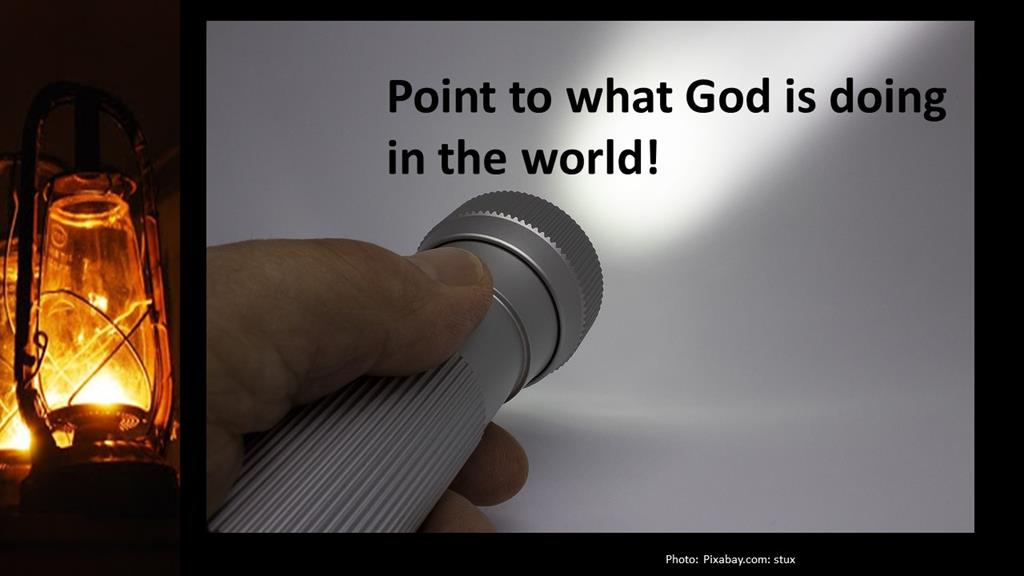 As we enter a New Year, flip the switch and be the light of the world. Hold tight to the faith we have and share the hope that in Jesus Christ, God has things under control. The good news is that we’re not alone as this New Year begins. Remember the truth of the Psalmist, “Weeping may linger for the night, but joy comes with the morning.
As we enter a New Year, flip the switch and be the light of the world. Hold tight to the faith we have and share the hope that in Jesus Christ, God has things under control. The good news is that we’re not alone as this New Year begins. Remember the truth of the Psalmist, “Weeping may linger for the night, but joy comes with the morning.